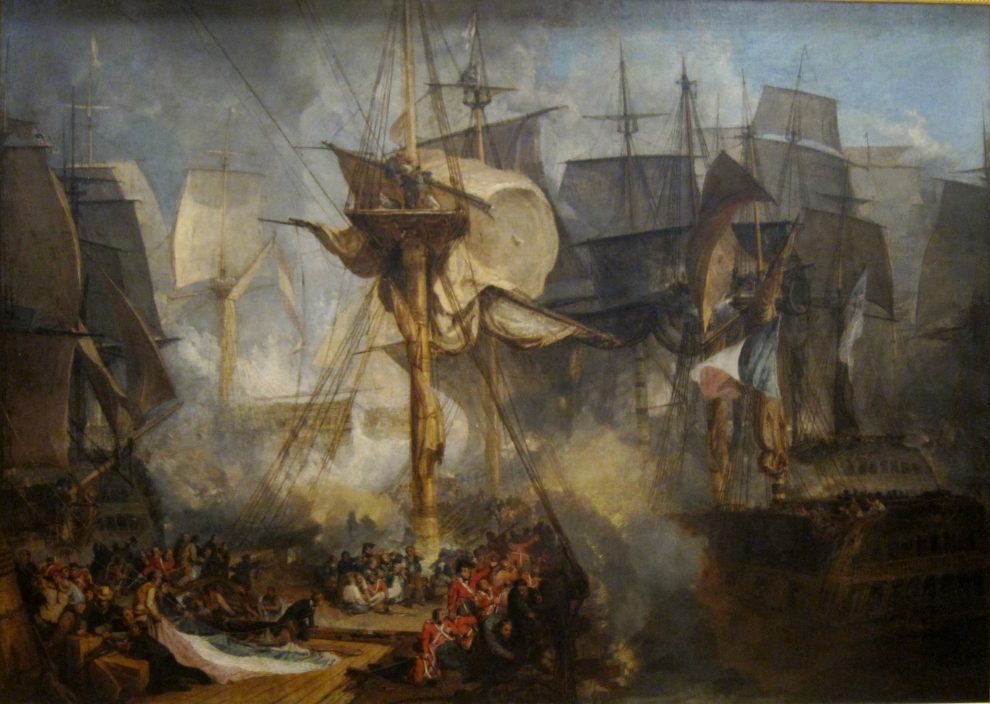The Battle of Trafalgar, fought on October 21, 1805, off the southwest coast of Spain, was a monumental naval conflict that pitted the British Royal Navy against the combined forces of the French and Spanish fleets. This clash marked a decisive turning point in the Napoleonic Wars and left an indelible mark on naval warfare. This article aims to explore the significance and impact of the Battle of Trafalgar.
At the beginning of the 19th century, Napoleon Bonaparte’s ambitions for European dominance led him to establish a blockade against Britain. In response, the British Navy, under Admiral Horatio Nelson’s command, devised a plan to break the blockade and engage the combined French and Spanish fleets. The stage was set for a fierce confrontation in the waters off Cape Trafalgar.
On the day of the battle, Admiral Nelson’s fleet of 27 British ships engaged a combined fleet of 33 French and Spanish vessels. Nelson devised an unconventional strategy, known as the “Nelson Touch,” where he divided his fleet into two columns, aiming to break through the enemy’s line of ships. This bold tactic caught the French and Spanish fleets off guard and led to intense and close-quartered combat.
Admiral Horatio Nelson’s exceptional leadership and tactical brilliance played a pivotal role in the outcome of the Battle of Trafalgar. Despite being outnumbered, Nelson instilled a sense of determination and unity in his fleet. His famous signal, “England expects that every man will do his duty,” became a rallying cry for the British sailors. Nelson led from the front, exposing himself to great danger, and tragically lost his life during the battle. Nevertheless, his leadership and heroism became legendary.
The Battle of Trafalgar resulted in a resounding victory for the British Navy. The combined French and Spanish fleet suffered heavy losses, with 19 ships captured or destroyed. The British, on the other hand, lost no ships. The battle effectively ended Napoleon’s hopes of invading Britain and established British naval supremacy for the next century.
The Battle of Trafalgar had far-reaching consequences, both in military and political spheres. It solidified British control over the seas, ensuring their dominance as a global naval power. The victory at Trafalgar allowed Britain to expand its empire and secure its trade routes, contributing to its rise as a superpower during the 19th century.
The battle also had a profound impact on naval warfare tactics. The Nelson Touch, which emphasized the need for bold and decisive action, revolutionized naval strategies. The concept of breaking the enemy’s line became a fundamental tactic in subsequent naval battles.
Moreover, the Battle of Trafalgar elevated Horatio Nelson to the status of a national hero in Britain. His death in battle transformed him into a symbol of selfless sacrifice and unwavering duty. Nelson’s legacy influenced generations of naval officers and continues to inspire to this day.
The Battle of Trafalgar stands as one of history’s most significant naval conflicts. It marked a turning point in the Napoleonic Wars, securing British naval dominance and thwarting Napoleon’s plans of invasion. The battle’s impact on naval tactics and the legacy of Admiral Nelson further solidified its significance. The Battle of Trafalgar remains a testament to the courage, leadership, and sacrifice displayed by all those involved and continues to be remembered as a defining moment in maritime history



















Add Comment